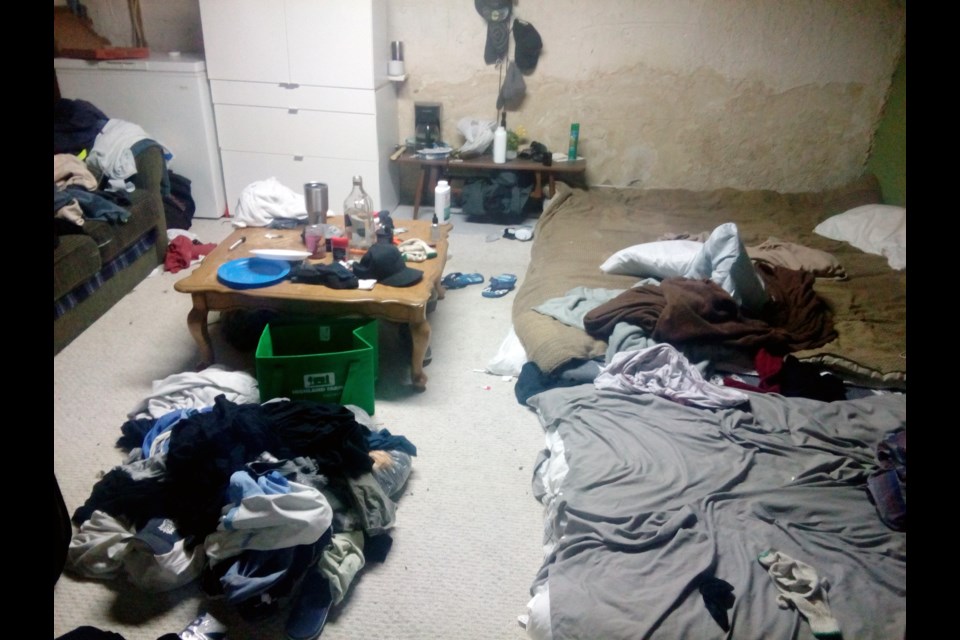The 43 victims of a labour human-trafficking ring who were rescued last week in Barrie and Wasaga Beach had been working for over a year at various resorts in Collingwood, Innisfil, Oro-Medonte Township and Cornwall while living in squalid conditions, police revealed at a news conference in Barrie today.
Although no charges have been laid, Ontario Provincial Police, Barrie Police Service, Canada Border Services Agency (CBSA) and other community-based agencies released more details of the investigation at Monday's press conference, which was held at the Holiday Inn on Fairview Road.
“Human trafficking is modern-day slavery. Labour human trafficking is a difficult crime to investigate. At every stage, our collective concern has been to ensure these 43 victims are well cared for from a personal health and wellness perspective and that they are now safely housed,” said Dep.-Comm. Rick Barnum, provincial commander of OPP Investigations and Organized Crime.
“We have to acknowledge that this is the first time we have seen a labour human-trafficking operation of this nature and of this size in our area. This is very disturbing,” said Barrie Police Chief Kimberley Greenwood.
“It is inconceivable that this was taking place in our community,” she added.
On Feb. 5, approximately 250 front-line and support unit members from the OPP, Barrie police and CBSA executed 12 search warrants in Barrie and Wasaga Beach.
The alleged traffickers controlled wages and charged the workers fees for accommodations and transportation.
The 43 workers – mostly males ranging in age from 20 to 46 years – were brought to safety, re-housed and provided with legal employment at a local resort.
“To me, this is what it means to be a Canadian: Stepping up when others are in need and rectifying wrongs in our community when we’re able to do so,” said Greenwood.
Since 2018, police began investigating information that suggested Mexican-born workers were being trafficked and/or defrauded by a cleaning company based in Barrie, which was contracted to do work at various resorts in Collingwood, Innisfil, Oro-Medonte and Cornwall.
According to police, the workers initially paid large sums of money to leave their home country and be transported to Canada. Once here, they had to live under poor conditions at locations in Barrie and Wasaga Beach. They were then transported by the alleged traffickers to and from work locations.
“We don’t want to identify the resorts specifically, but what we can say is that all of them have been very co-operative with the police since being made aware of the situation," said OPP Det.-Insp. Martin Graham. "In fact, they have stepped up and gone beyond in order to provide any assistance they can to the victims once they discovered what had happened."
Graham said all of the workers had entered Canada legally, but all had different stories.
"Some arrived here with the promise of a work visa and work being offered," he said. "Some came here with the belief that they were going to combine legitimately and legally with the company they were engaged with... and that they were also going to be learning English as a second language while working. Obviously, when they arrived, none of that materialized.”
Of the 43 people involved, Graham said that some expressed the desire to go back to Mexico right away, and local police are now helping them make those plans.
According to Graham, one has already returned to Mexico, with more anticipated in the coming weeks.
“Some of them did indicate that they wanted to return to Mexico, and we will facilitate what their wishes are,” he said.
All police agencies indicated at the news conference that the investigation is ongoing and criminal charges are expected be laid at a later date. They indicated there are two people of interest on their radar, with the possibility of more should new information come to light.
“Whether it involves forced labour or the sex trade, the trafficking of humans is unacceptable. It has no place in our communities and it will not be tolerated. If you are a victim of human trafficking, please, call the police,” said Greenwood.

